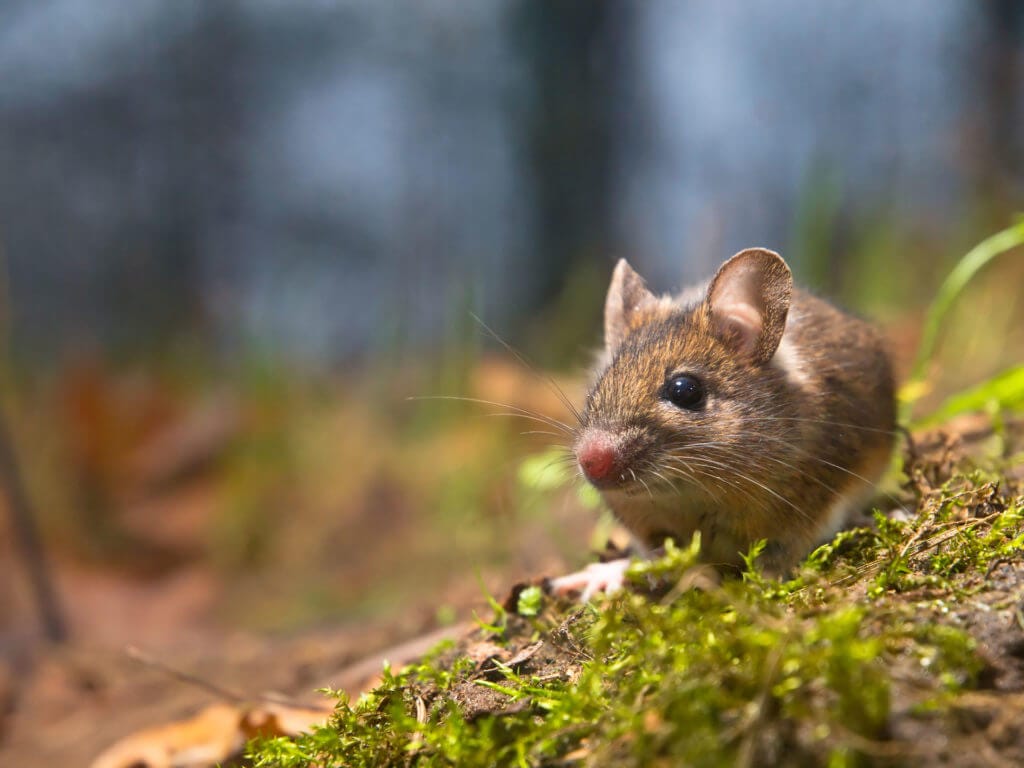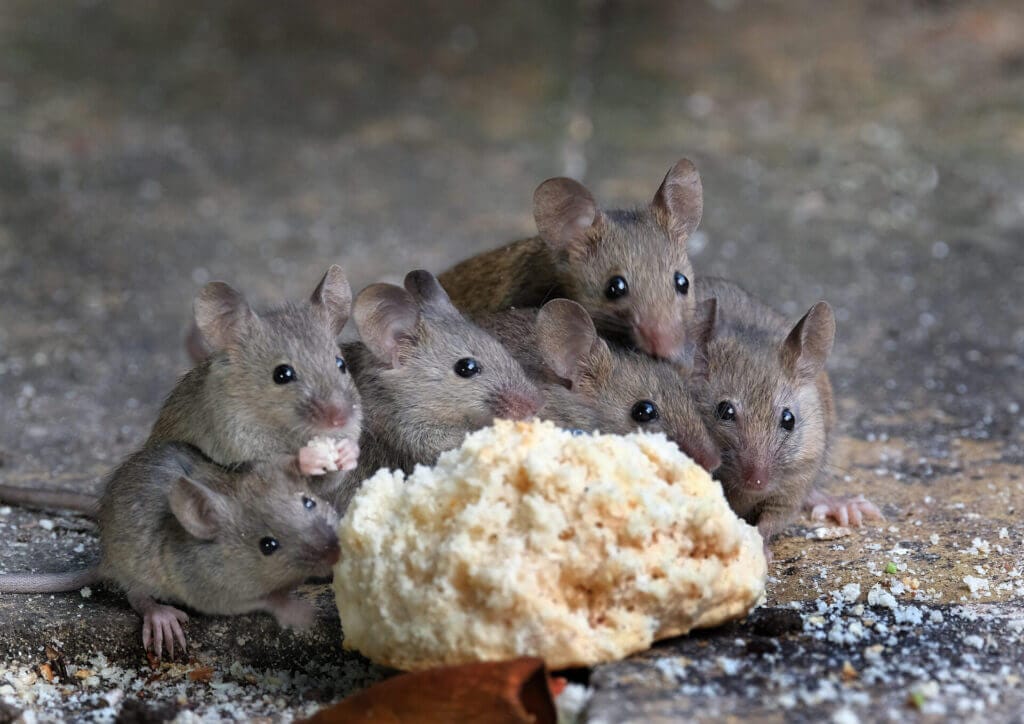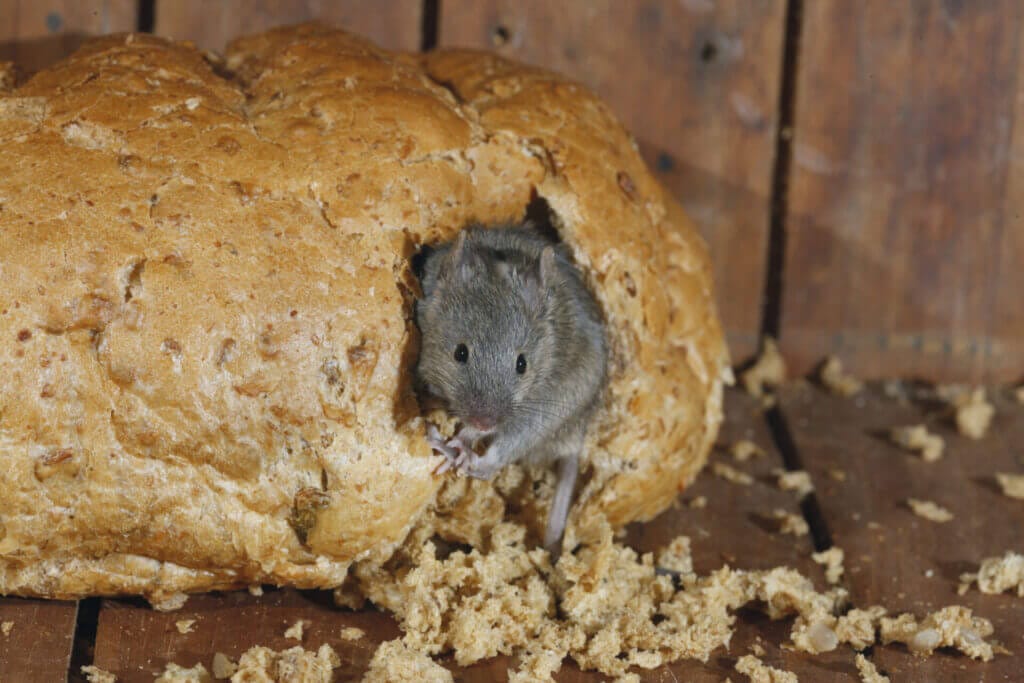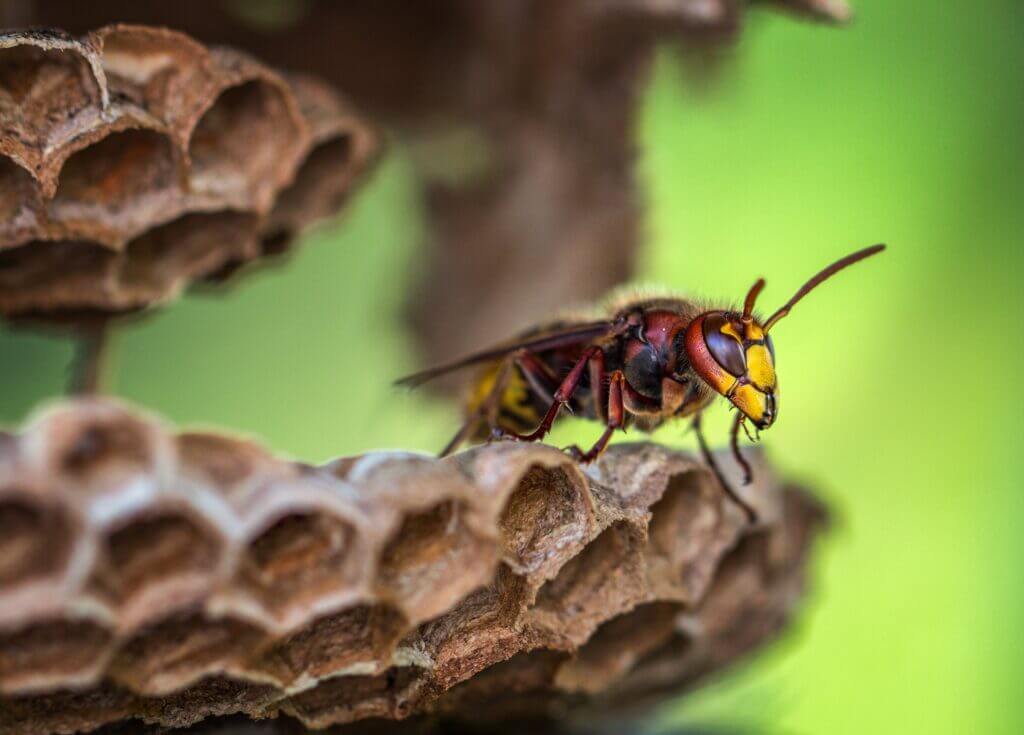Mouse Control
Mice are widespread throughout the UK and are usually more troublesome in autumn and early winter than at other times of year.
The reason there are more problems in the autumn is that field mice tend to look for places to overwinter, so rural properties will suffer more problems at this time of year as field mice converge on properties to gain winter protection.
In many cases, field mice have eaten sufficient food during the summer that they are able to overwinter in a roof void without need to feed. This can be an issue in that the mice are not easily attracted to mouse poison and may be difficult to control, as, even traps rely on food attractant to catch the mice. One of the most palatable mouse poisons on the market is the Brodiag Sachets this poison is wholewheat, which is highly attractive to mice, even overwintering field mice.
The common house mouse is around in built up areas all year round but even this mouse appears to become more of a problem in the autumn and winter months.
Proofing Against Mice
Mice can enter a property via many routes and even some air bricks allow mice access to a building. We also have our own brand PCD air brick covers
As you are reading this you probably have a mouse infestation, or have just gone through having one. Ideally, if you had read this before you had a problem, then you could have taken a few steps to avoid getting a mouse problem.
Firstly, the air vents in the walls of your house. You can buy air vent covers with stainless steel screen mesh that can be screw fixed to the wall and prevent mice and flies being able to enter your home through the air bricks, which are there to ventilate the property, not to allow mice free access!
In the kitchen, which is the most likely place that you will encounter the mice as they will be searching for food (at least, house mice will) seal up any holes you can find. This means virtually any holes around pipes and service cables that enter the kitchen. Mice can access through a gap of less than half an inch so be very thorough in searching for damaged walls, skirtings and floorboards. There are some special fillers available for sealing up potential mouse entry points but the simple low cost method is to use a conventional plaster filler with some broken glass pieces within it. Check filled holes after24 hours to ensure the mice have not chewed their way back through whilst the filler was still setting. Another product we recently added to our site is Romax Rodent Seal. This is a quality silicone in a mastic/caulking tube and incorporates wire wool within the silicone to prevent mice chewing through once the silicone has set. Pro-Active Rodent D-fence (proofing sealant)
Check inside airing cupboards as these enclosures usually have a lot of cabling and pipework entering from the roof and leaving through the floor. These would be good travel routes for mice to get around your house.
Electronic Mouse Control
Plug in electronic devices for mouse control can be effective. Plugging in an electro-magnetic device can drive mice out of a property, it may take a few days but it seems the mice get a tingling sensation from the electro-magnetic field created by these units and will vacate the area fairly soon after getting the experience. These electonic units change the electro-magnetic field that naturally exists around electric cables and the revised frequency is very irritant to all mice, be they field mice or house mice.
A note of caution, many electronic devices sold for pest control are only sonic, not electro-magnetic. Sonic only devices are not very effective and we do not offer them. Even the electo-magnetic devices only create a magnetic field change up to two metres from the electric cabling in your home, so, if you have an old house without lots of power points and lights, then it is possible that an electo-magnetic pest repeller would not drive out the mice.
There are other electronic methods of dealing with mice. Electronic mouse traps that will electrocute the mice when they enter the unit. These can be very effective but may only work for a few months as the mice could learn that this is not a safe area to venture into.
Using Mouse Poison
Mouse poison is by far the most successful method of dealing with a mouse infestation. Many online pest suppliers offer “Professional” grade poison, however, in order to kill rats and mice, poisons need to be at a very carefully guaged strength. If you buy Difenacoum, it will be at 0.0025%.
Some poisons are only available for professional use and that is where the difference lies. Professional mouse poison is usually a product that has restrictions on the areas in which the mouse poison can be used, ie: indoors only. The Health & Safety Executive rightly restrict sales of such products to the general public because control of use is then lost and there becomes a high risk that a potent mouse poison could be employed outdoors and put other animals at risk such as pet cats and dogs or non target birds, chicken etc etc.
In the USA, you can only buy mouse poison for amatuer use in ready to use plastic mouse bait boxes that are one use only, you cannot open to re-fill. This may be the way things go in the UK but, at time of writing, the general public can still access a range of good and effective mouse poisons for use in whatever presentation forms the user feels appropriate, ie: cardboard mouse poison bait boxes, plastic bait boxes. We suggest to always use bait boxes to gain control of the infestation, so the mice cant take the block or sachet away.
Using Mouse Traps
For those that are concerned about using poisons, both as an ethical concern and as a risk of the dead mice causing a bad odour, then mouse traps are another method of mouse control.
We do feel that if you have a number of mice to catch, mouse traps are not always the best method because at some point the mice will realise that their friends don’t come back once they have gone into the trap, and if you use break back mouse traps, other mice can clearly see what happens when they venture near the traps.
We have found the multi catch mouse traps to be very effective but in fact, most mouse traps are successful if set finely enough that the mice trigger them. Mice are very inquisitive creatures and are quite easily caught in most kinds of mouse trap.
The old favourite bait for trapping mice, cheese, is no longer the best attractant. Chocolate is very good and peanut butter can be very attractive to mice. You should place plenty of traps around wherever the mouse problem is, the more traps in place, the more likely you are to get a good initial impact on the infestation. Maybe you only have a single mouse, but still try at least two traps.
All Mice Control Guides
Frequently Asked Questions About How to Control Mice
Signs of a mouse infestation include finding mice droppings, hearing scratching or gnawing noises, or seeing mice in the house.
Mice can enter homes through small openings or cracks in the walls, floors, or foundation. They are also attracted to sources of food and shelter.
To prevent mice from entering your home, seal any potential entry points and keep food stored in airtight containers. Remove any potential shelter sources, such as piles of debris or clutter.
If you find a mouse in your home, try to safely contain it and release it outside. If you are unable to do so, or if you have an infestation, it is recommended to contact a pest control professional for assistance.
Yes, mice can carry and transmit diseases, such as salmonella and hantavirus, through their droppings and urine. It is important to properly clean up any mouse droppings and take precautions to avoid contact with them.
To get rid of mice, it is recommended to contact a pest control professional who can identify and eliminate the problem using a variety of methods, such as traps and baits.
While mice are generally not dangerous, they can cause damage to property and pose a health risk due to their ability to carry and transmit diseases. They can also chew through electrical wiring, which can be a fire hazard.
To prevent mice from returning, it is important to continue to seal entry points, keep food stored properly, and maintain a clean and clutter-free environment. Regular inspections and preventive measures can help to reduce the risk of a mouse infestation.
While there are some home remedies that may help to deter mice, such as peppermint oil or mothballs, they are generally not effective at completely eliminating an infestation. It is recommended to contact a pest control professional for the most effective solution.




